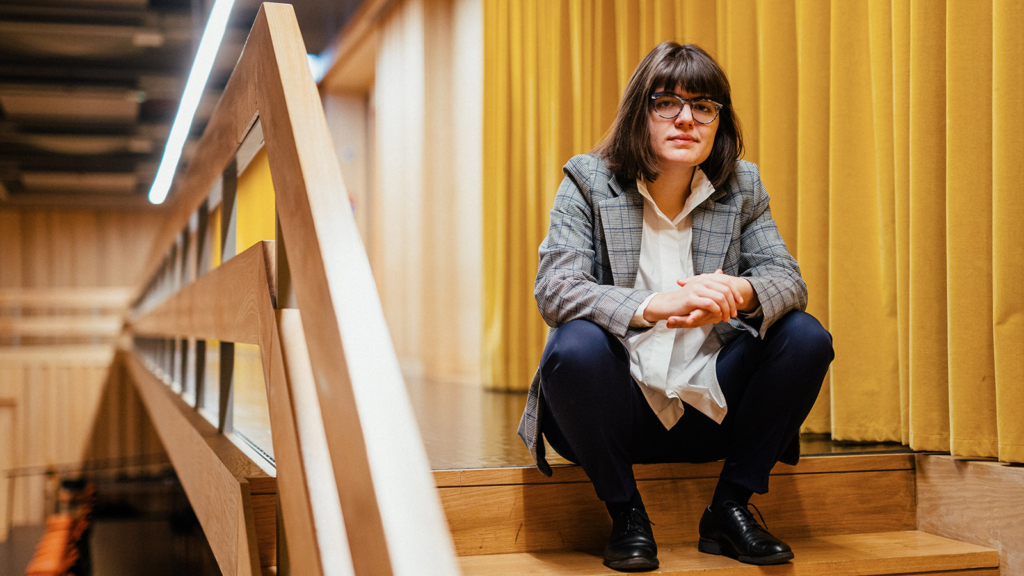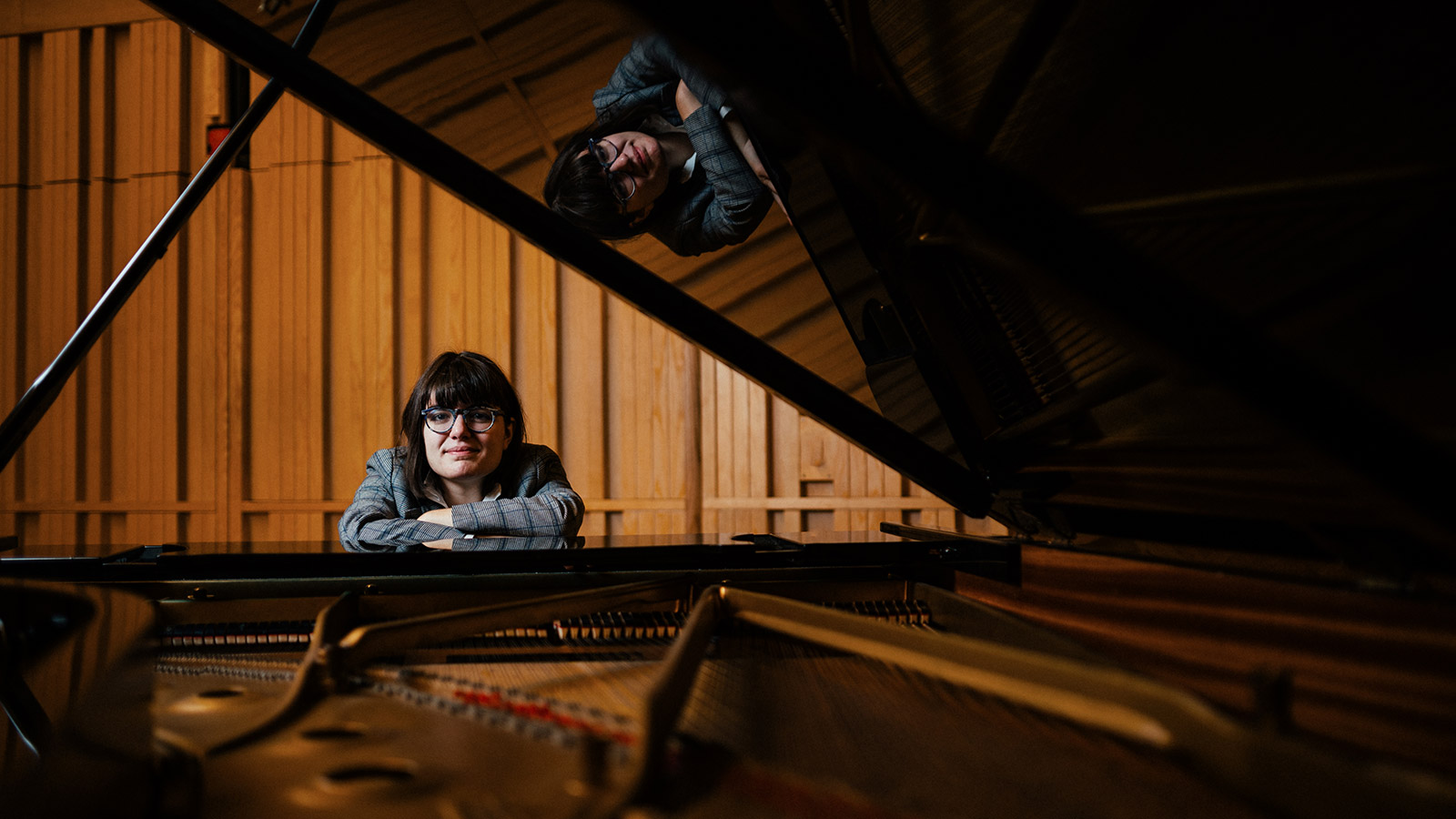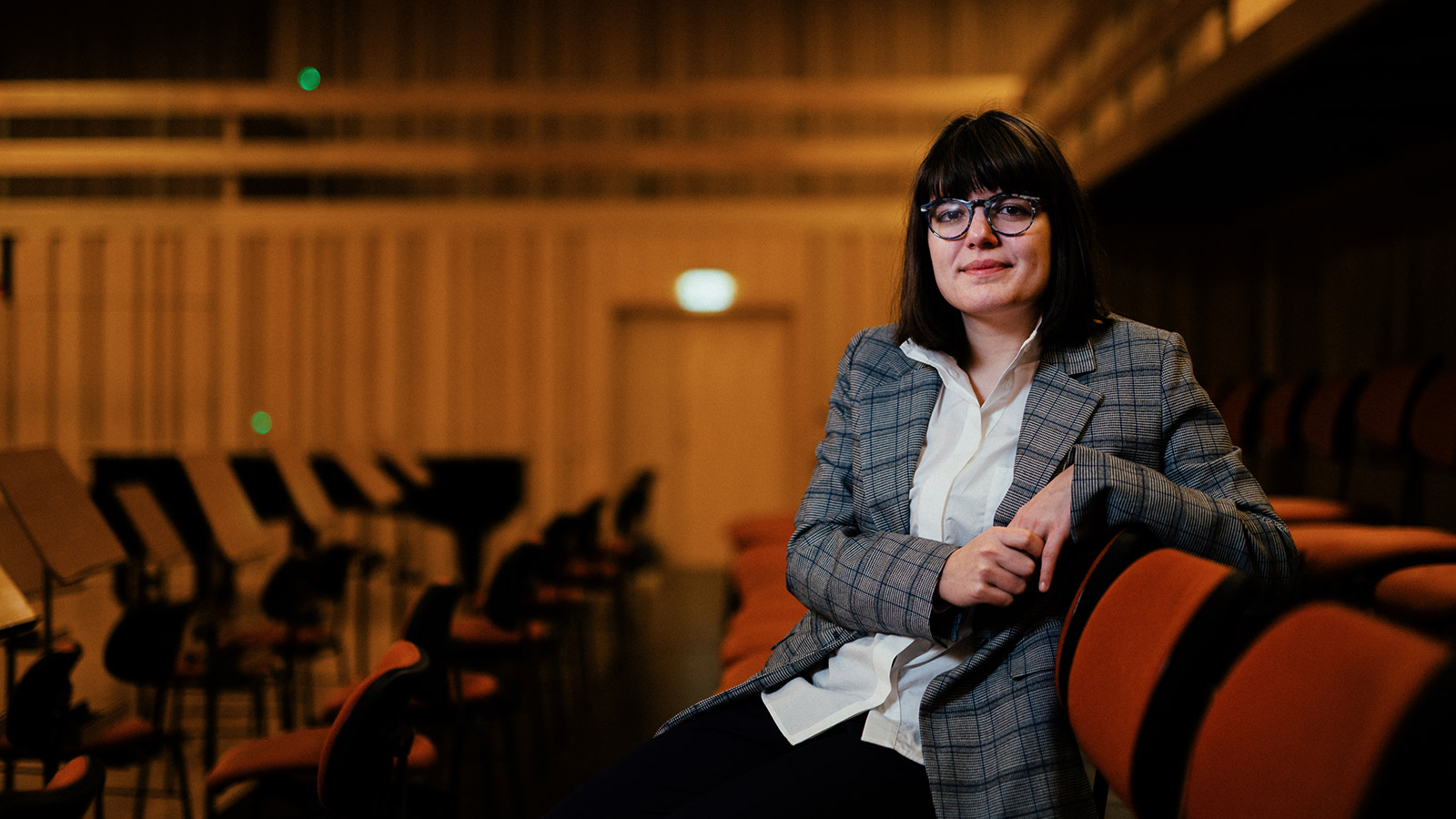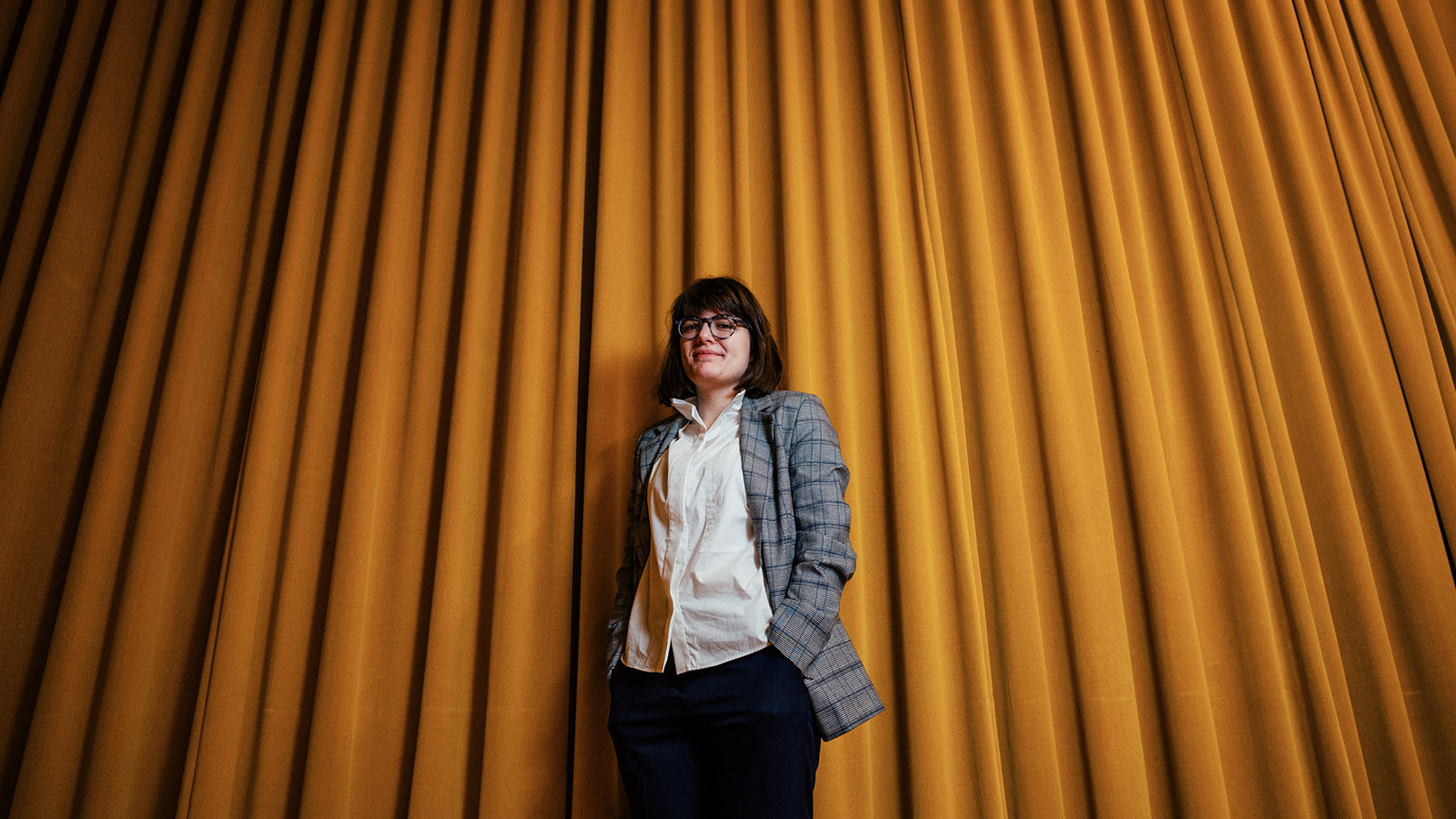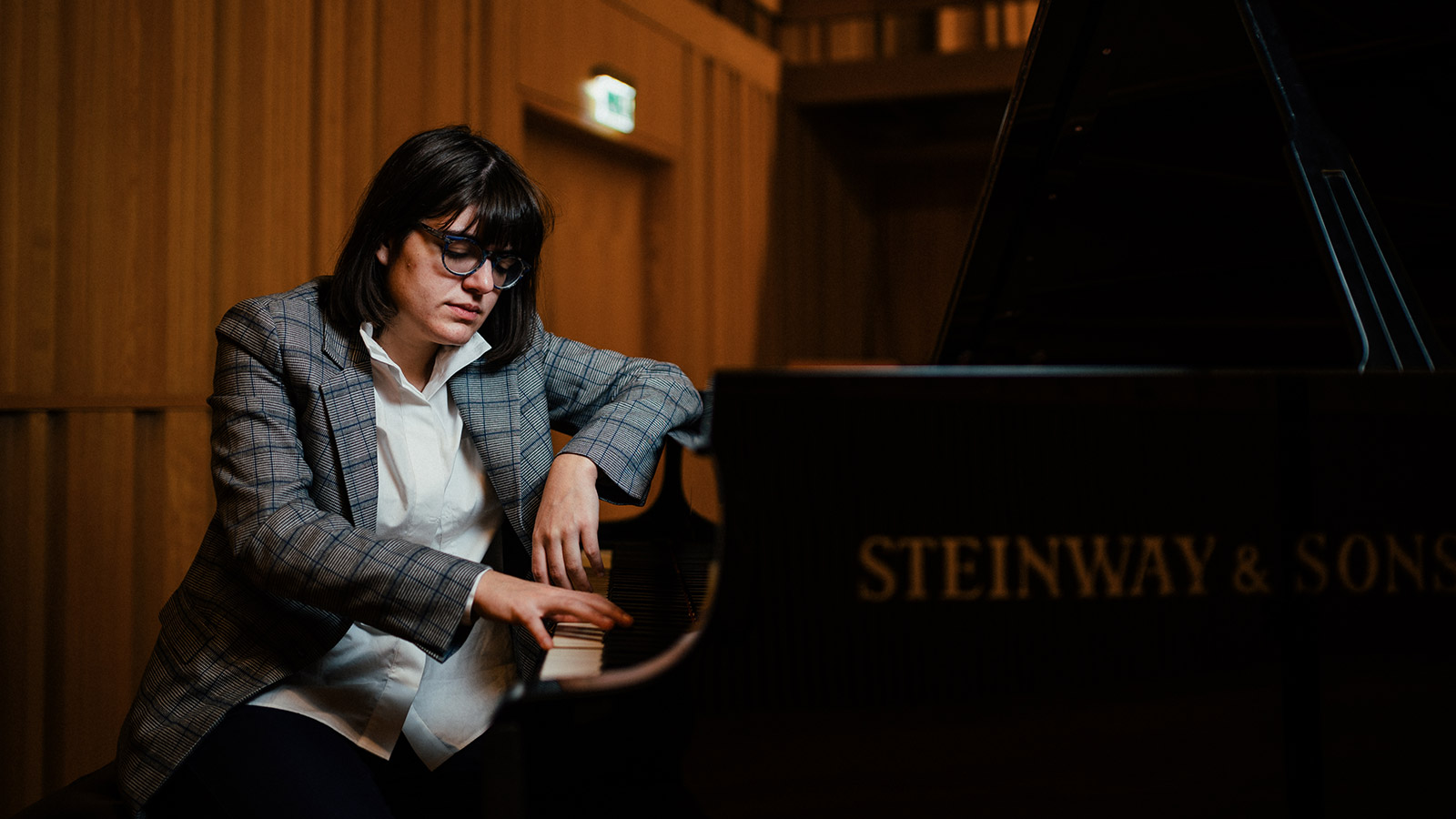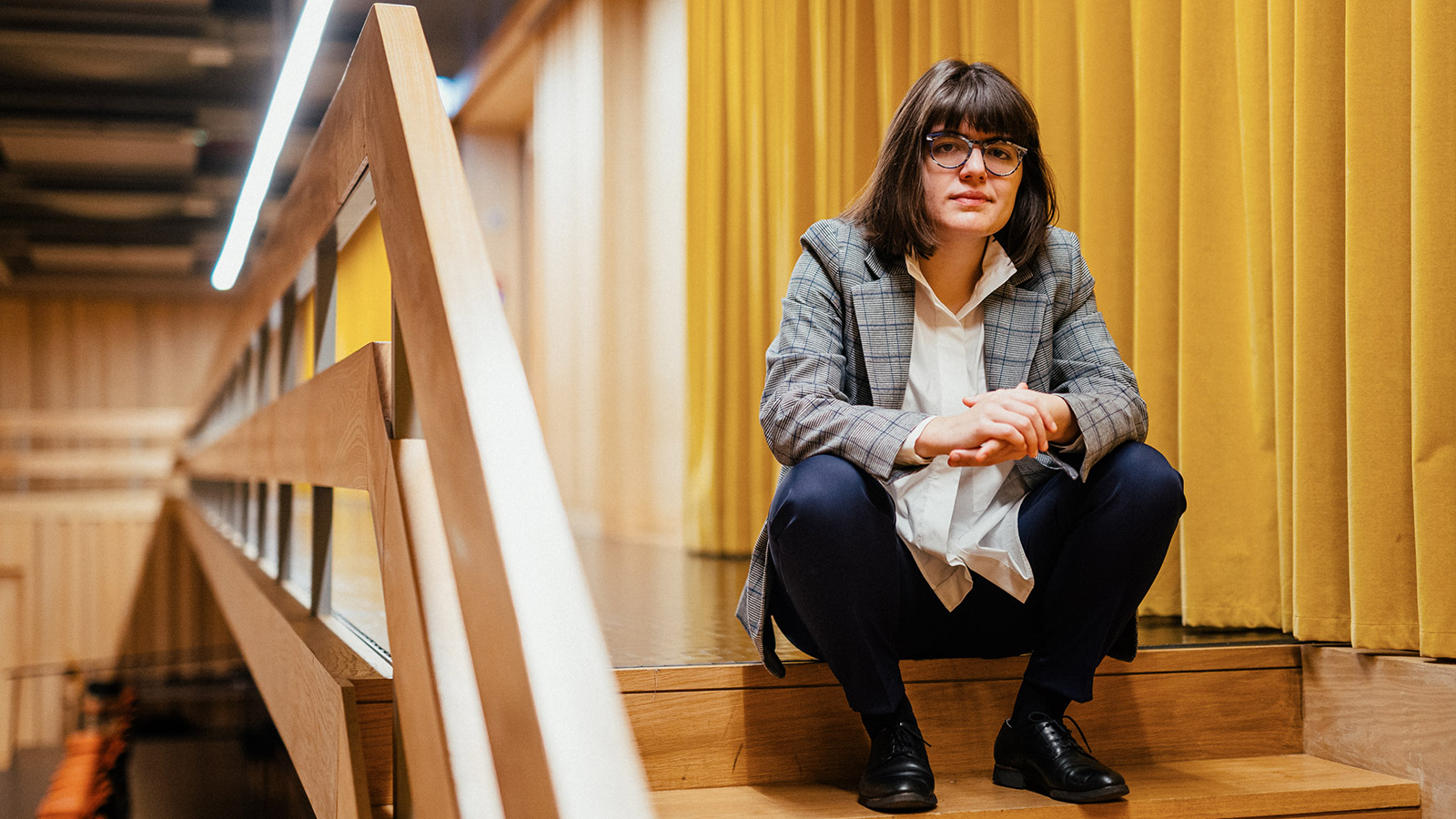Marta Mata
“People are unaware of how good classical music can be“
We met her while on a short visit to Lisbon, just as she was about to return to the Netherlands, where she is attending the Master’s in Piano at the Conservatorium van Amsterdam, with the help of a Gulbenkian Grant for Art Education abroad. In a casual manner, Marta Mata speaks of her relationship with the piano with a certain distance, realism and a great deal of humility.
She tells us that she has been lucky enough to meet good teachers along the way, who have encouraged her to continue learning – Luís Pinto, Paulo Oliveira, Jill Lawson, Naum Grubert, Frank van de Laar. Marta often refers to the importance of mental health for personal and professional well-being and believes that classical music should be more accessible to the general public. She does not think of the piano as an “eternal relationship” because “it is too much pressure”, but for now she does not see herself doing anything else, nor does she think of returning to Portugal in the near future. Find out more about what this Gulbenkian grantee has to say.
Tell me about your journey. How did your passion for the piano begin?
The choice of the piano was a bit accidental. My father had one of those old pianos at home and I liked to play, in fact, I would beat on it, almost as if it were a percussion instrument. I went to the Casa do Povo (People’s House) and I hated it; my father paid for a whole year and I gave up after two months. A year later, I wanted to try it again and, because it was really my choice, it went well.
Then I went to the Palmela Conservatory, I liked it and I kept on studying piano because I thought ” if this doesn’t work out, I can do something else later on”. It was never a very serious relationship at all. So far I’m enjoying it very much, I can’t imagine doing anything else, but you never know what the future might bring.
And now you’re completing your master’s degree in Amsterdam. How is the experience going?
The first year I spent in Amsterdam I was doing a preparatory course for a Master’s degree, which was very positive because it always takes a while to adapt to a new culture and then there’s the pressure. There are always things that bug me. It was a year of discovery, I took a big step forward, but I wasn’t fully expecting it. This was also possible because of my teachers and classmates. The level of the classes is very good and it’s like a second family, they support each other a lot. I even went to a competition where some colleagues also participated and I was nervous thinking “will this ruin some of the relationships?” In fact, not at all; it was the opposite. Maybe here, as there are few opportunities to get some financial stability as a musician or artist, it gets on people’s nerves and motivates them to be more competitive than collaborative, when, in reality, collaboration is so much more rewarding.
But it’s turning out pretty good. If you want to do something, there are opportunities out there. Even if you start off with a very small budget, there’s always the possibility of becoming a professional.
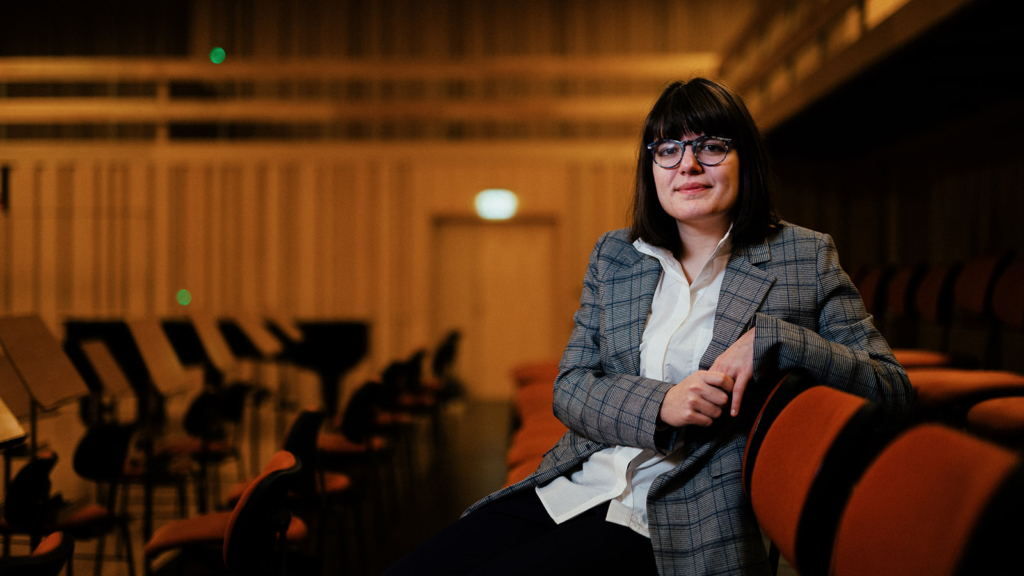
So it wasn’t until you moved there and started your Master’s that you thought ” this is what I will be doing for a living”?
Yes, I think so. At least in a more mature and committed way, when choosing means renouncing: if I want to become this, I have to say no to that. This is something I was already doing, but there it took on another dimension because it seems that the work is accorded much more respect.
If you were not a pianist, what would you see yourself doing? Do you have hobbies or other interests?
I love reading, but I don’t see myself as a writer, no way. As a matter of fact, I’m can be a disaster when it comes to communication [laughs]. I never really enjoyed school either, to be honest. I like having teachers just to clarify doubts, I’d prefer to study at my own pace. I remember I loved Maths, but I never followed the teacher’s instructions when doing the exercises: if they were doing one task, I’d do another. I liked Maths because to me it was like a puzzle to be solved, like a trickier sudoku. I think that’s what it was. I was never good at memorizing things, I am still terrible at it, I can’t remember a thing the day after.
But now you also have to memorise music sheets…
Oh yes, and that’s the toughest part for me, when it comes to being nervous. I try not to focus on the notes, because I know that afterwards I will have my head playing tricks on me. So memory is definitely my weakness.
So it’s easier for you to memorise the movements, the physical memory?
Yes, in other words, playing without thinking. Of course that is not safe at all, and I try more and more to be aware of what I am playing and look at the score. But there are moments when nerves get the better of me, so in performance contexts I try to switch off as much as possible and be as calm and confident as possible. And the truth is that one thing you realise when listening to live recorded pieces by pianists you love is that everyone has memory lapses. The most important thing is how you improvise and how you manage to work your way out of it. I don’t think the composers themselves would stab us because of this (figuratively speaking, of course).
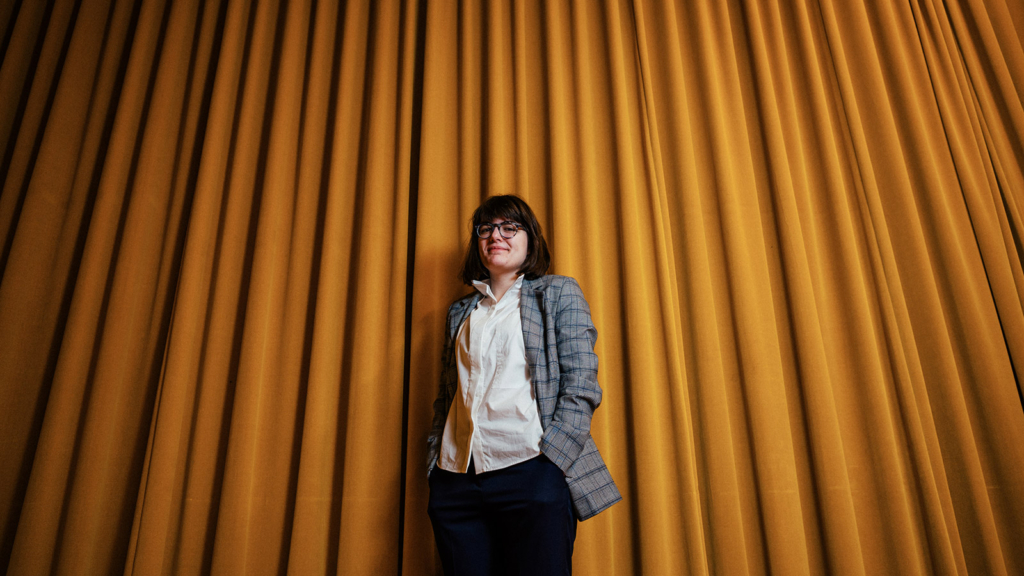
What do you see yourself doing in the future? Where would you like to be in 10 years time?
That’s a good question. Personally I’m still experimenting with things myself, trying to get out of my comfort zone. Before, I was very afraid of starting projects, because I thought I wasn’t good enough yet. The Gulbenkian Grant has really encouraged me, I thought to myself: “if I’ve won the grant, maybe I’m not that bad” [laughs].
In 10 years I know that teaching will be a reality, because I like it and it brings some emotional and financial stability. I would also love to be able to at least maintain some regularity as far as chamber music projects are concerned, because they don’t involve as much pressure as solo projects and they are personally and musically good for me. I am also increasingly motivated to ask myself what kind of audience I want to have, apart from the more formal ones. There are many people who don’t go to a classical music concert because they lack the habit or because they think they don’t like it, and I would like to find some way of making it more accessible to that audience.
Did you listen to a lot of classical music growing up?
Yes! One of my main references was Martha Argerich, with Schumann’s concerto. My father had those CD collections, the best of Tchaikovsky, the best of Chopin… it was that and the Beatles [laughs]. I remember listening to it over and over again at school and my classmates would ask “why do you have an MP3 full of music by people who are already dead?”. I think people are unaware of how good classical music can be.
Were you involved with the Foundation before you won the grant?
No, I just came here to see concerts. Sometimes I bought tickets for the piano seasons, when I had some money and I was able to attend the concerts. There was only one time that I came here to play with a chamber music group, with professor Paulo Pacheco. My sister also got a grant, but she’s not a musician, she studied contemporary dance.
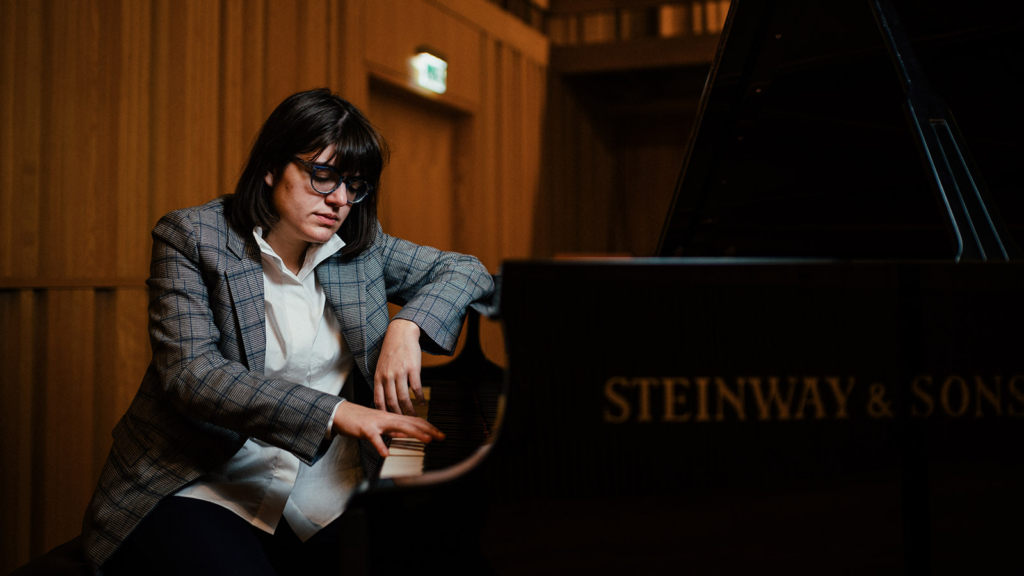
What was the importance of this grant for you?
I’ve always had parents who were very supportive and who made an effort so that I didn’t have to work, but it’s really nice now not having to ask them for help and not having to look for a job. I’m able to have time and space to not do anything or reflect on what I’m doing. I think it’s important for anyone who is a musician, not only to practice an instrument, but also to be able to do nothing; not exactly being lazy and spending time on your smartphone, but understanding that sometimes creativity can arise from boredom. You have to avoid getting into autopilot mode. Sometimes I listen to my friends playing and I think: OK, the notes are all there, but you need to figure out what it is that you want to do creatively with that piece. That comes from some kind of zen space, from just being focused on that, and that’s what this grant gives you.
In essence it’s all about finding your own voice within the instrument, isn’t it? That must be a difficult process.
Yes, and that is enormous pressure as well, because the pieces are all very well known now. Then there’s that thing: ‘you’re not playing it right’; but is there a right way to play a piece? It’s a very thin line indeed, but it’s a challenge that I think is worth striving for.
When it comes to criticism, what do you hear most when you are not performing well?
There’s something I heard a lot when I started playing in Amsterdam. Taking up the space and performing, that is, getting used to playing for others, comes with practice. In the beginning, when you’re not used to it, your way of playing is completely different from when you’re studying, which is very ironic and frustrating, because you study for hours and hours and then you go on stage and play completely differently – and not in a good way. You get much more tense, you play more upwards, instead of all the weight going down and making it a more natural sound.
It’s funny because playing in the rehearsal room is only part of the job. There’s a whole psychological process, it is a matter of both physical and mental health, and I believe that this has only started to grow in importance now with our focus on mental health. Playing on stage requires not only studying, but also psychological preparation and a lot of practice on stage.
